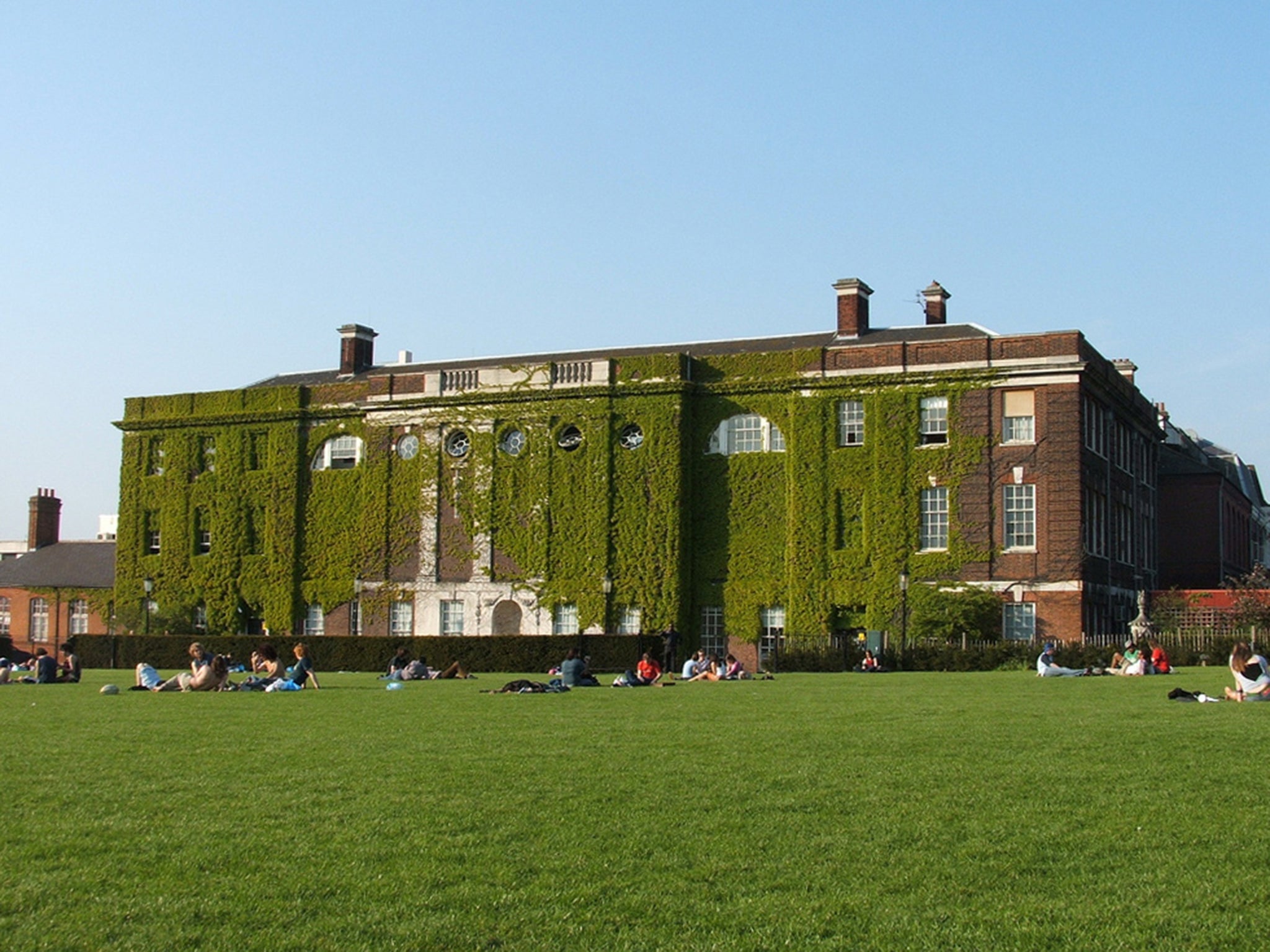Goldsmiths University’s Keep Wednesday Afternoons Free campaign passes after 4 years
Students speak out both for and against the move as the NUS passes a motion to support other universities

Your support helps us to tell the story
From reproductive rights to climate change to Big Tech, The Independent is on the ground when the story is developing. Whether it's investigating the financials of Elon Musk's pro-Trump PAC or producing our latest documentary, 'The A Word', which shines a light on the American women fighting for reproductive rights, we know how important it is to parse out the facts from the messaging.
At such a critical moment in US history, we need reporters on the ground. Your donation allows us to keep sending journalists to speak to both sides of the story.
The Independent is trusted by Americans across the entire political spectrum. And unlike many other quality news outlets, we choose not to lock Americans out of our reporting and analysis with paywalls. We believe quality journalism should be available to everyone, paid for by those who can afford it.
Your support makes all the difference.A London university has declared Wednesdays to be lecture-free from the next academic year following a four-year long campaign.
Goldsmiths University of London’s students’ union (SU) announced in a statement that the university had agreed to keep the afternoons open after officers sought to keep the time empty for “other beneficial activities.”
Between 12pm and 5pm, students will be allowed to undertake extra-curricular activities, including sports and societies events, as well as freeing up time for part-time work.
Danny Nasr, acting president of the SU, told the Independent: “Activities are an integral component to student life in any campus. They curate the education experience with activism, sport, community, and consciousness.”
He said the decision would enable more students to engage with both the university and the SU, adding: “This can also enable us to plan events on Wednesdays catered to specific student groups, such as postgraduates who are currently disengaged with the union as a whole.”
The campaign lasted for four years because there was a lack of collaborative timetabling system. Now, though, this has been solved after discussions with the different departments at the university.
Elisabeth Hill, pro warden for learning, teaching, and enhancement, acknowledged how the decision will come with some challenges. She said: “There is much to fit in in the week, and it is particularly challenging to timetable practice-based courses on a 4.5 day week.
“We will continue our dialogue with the students’ union to protect this free time while ensuring the academic requirements of our programmes are provided for.”
This decision to have the afternoons free, however, has received mixed reviews among the student body at the university.
Stefan Newton, second-year media and communications student and captain of the university’s second football team, praised the decision on social media, and wrote: “No longer shall we feel bitter towards the infamous 2pm lecture that has befouled our hopes and dreams as captains and players for centuries now.”
In his first year, Mr Newton had lectures on Wednesday afternoons which forced him to choose between football and his lectures. He told the Independent: “It’s been hell trying to get 11 players every Wednesday. It isn’t a choice I should have to make.”
On the other hand, some students are not that supportive of having Wednesday afternoons lecture-free.
Robbie Wojciechowski, a third year sociology and anthropology student, said: “There is less and less contact time [with lecturers] as it is and, as we place more and more restrictions on what we can do with contact time, we face an increasingly difficult situation.”
Richard Brooks, NUS’s vice president for union development, deemed the move “incredibly important,” something the NUS would be supporting SUs to do over the next year.
He said: “We know that opportunities - sports teams, societies, volunteering - change students’ lives and positively impact the world around them. KWAF [Keep Wednesday Afternoon Free] isn’t just about sports, though. It is also a way we can ensure students with part-time jobs, student carers, and those with other responsibilities can access education.”
University College London and King's College London (KCL) are other of the institutions to have already declared Wednesday afternoons lecture-free.
KCL SU’s vice president for activities and development, Joe Simpson, told the Independent the scheme had been implemented at the university many years ago, adding how it proved to be successful with most of the students supporting the decision.
There is currently also a campaign at KCL calling for the free time to start from 12pm, rather than 1pm, on Wednesdays.
Goldsmiths students will still have to attend 9am lectures. If lecturers decide to have classes during the afternoon period on Wednesdays, they are obliged to provide the same class at another time during the week so students do not miss it.
KWAF is a national campaign for university students to have a day in the week dedicated to extra-curricular activities.
A motion in support of the campaign passed at the NUS National Conference in Brighton last month.
Join our commenting forum
Join thought-provoking conversations, follow other Independent readers and see their replies
Comments